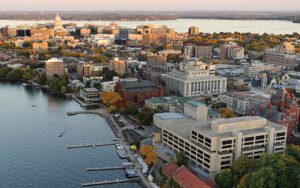Researchers from Wisconsin’s Center for Demography of Health and Aging, Michael Topping, Jason Fletcher, along with Jinho Kim, find association of birth in the US stroke belt with later life health and mortality in new research published in Population Health.
Highlights:
- • Examine non-fatal stroke, stroke mortality, dementia mortality, and Alzheimer’s Disease Mortality.
- • Find association of birth in the US stroke belt with later life health and mortality.
- • Find association of residence in the US stroke belt with health and mortality.
- • Show limited impacts of education as a mechanism for place effects on mortality.
This paper uses data from the Diet and Health Study (DHS) to examine associations between being born in a “stroke belt” state and old age stroke and mortality outcomes. Adding to prior work that used administrative data, our paper explores educational and health mechanisms that are both stratified by geography and by mortality outcomes. Using logistic regression, we first replicate earlier findings of elevation in risk of dementia mortality (OR 1.13, CI [1.07, 1.20]) and stroke mortality (OR 1.17, CI [1.07, 1.29]) for white individuals born in a stroke belt state. These associations are largely unaffected by controls for educational attainment or by experiences with surviving a stroke and are somewhat attenuated by controls for self-rated health status in old age. The results suggest a need to consider additional life course mechanisms in order to understand the persistent effects of place of birth on old age mortality patterns.

